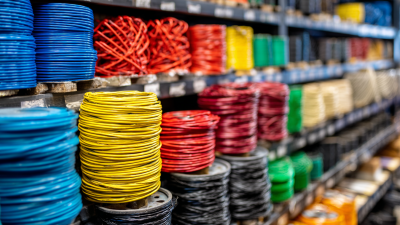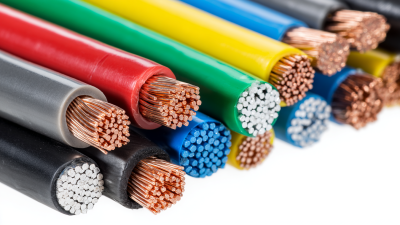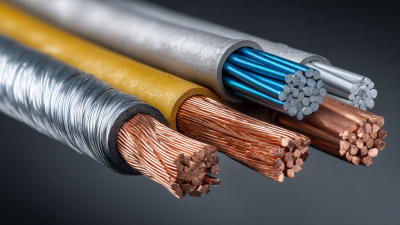In today's ever-evolving electrical industry, choosing the right type of electrical wire is crucial for maximizing efficiency and ensuring safety in various projects. According to the National Electrical Wiring Standards, improper wire selection can lead to energy losses of up to 30%, significantly impacting project budgets and performance. With a myriad of options available, ranging from copper and aluminum to specialty wires designed for specific applications, understanding the characteristics and advantages of each type is more important than ever. This blog aims to guide you through the 75 best electrical wire types, providing insights based on recent industry studies that highlight trends in energy efficiency and materials innovation. Whether you're a professional electrician or a DIY enthusiast, this comprehensive overview will help you make informed decisions that enhance the value and sustainability of your projects.

When embarking on any electrical project, understanding the different types of electrical wires is crucial for optimizing efficiency and safety. Each type of wire serves specific functions and is designed for particular applications, whether in residential, commercial, or industrial settings. For instance, non-metallic sheathed cable (NM) is commonly used in homes due to its versatility and ease of installation, while armored cable (AC) provides enhanced protection in areas where physical damage may occur.
Moreover, considerations such as wire gauge, insulation material, and voltage ratings play significant roles in determining the right wire for your project. Thicker wires are better suited for high-load applications, while copper wires, known for their excellent conductivity, are often preferred over aluminum in critical wiring contexts. By familiarizing yourself with these basics, you can make informed decisions that not only boost the performance of your electrical system but also adhere to safety regulations and standards, ensuring longevity and reliability for your applications.
| Wire Type | Gauge | Material | Application | Max Amperage |
|---|---|---|---|---|
| THHN | 12 | Copper | Building wire | 20A |
| XHHW | 10 | Aluminum | Outdoor service | 30A |
| UF | 14 | Copper | Underground | 15A |
| NM | 14 | Copper | Indoor wiring | 15A |
| MC | 12 | Copper | Commercial | 20A |
When selecting electrical wire for your projects, understanding the key characteristics that differentiate various wire types is essential for maximizing efficiency. Voltage rating, for instance, plays a crucial role in determining which wire is suitable for your application. Higher voltage ratings allow for greater distances with minimal energy loss, making them ideal for industrial settings. On the other hand, low-voltage wires are typically sufficient for residential tasks but may not withstand high load scenarios.
Tip: Always check the insulation type of the wire, as it affects both performance and safety. For instance, thermoplastic insulation (like PVC) is common for general use, while thermoset insulation is better for high-temperature environments.
Additionally, the wire gauge (AWG) influences the current-carrying capacity. Lower gauge numbers indicate thicker wires, which can handle more electricity without overheating. Choosing the correct wire gauge is vital in preventing potential fire hazards in your project.
Tip: Use a wire gauge calculator to match your project's power requirements to the appropriate wire size, ensuring efficiency and safety are maintained throughout your installation.
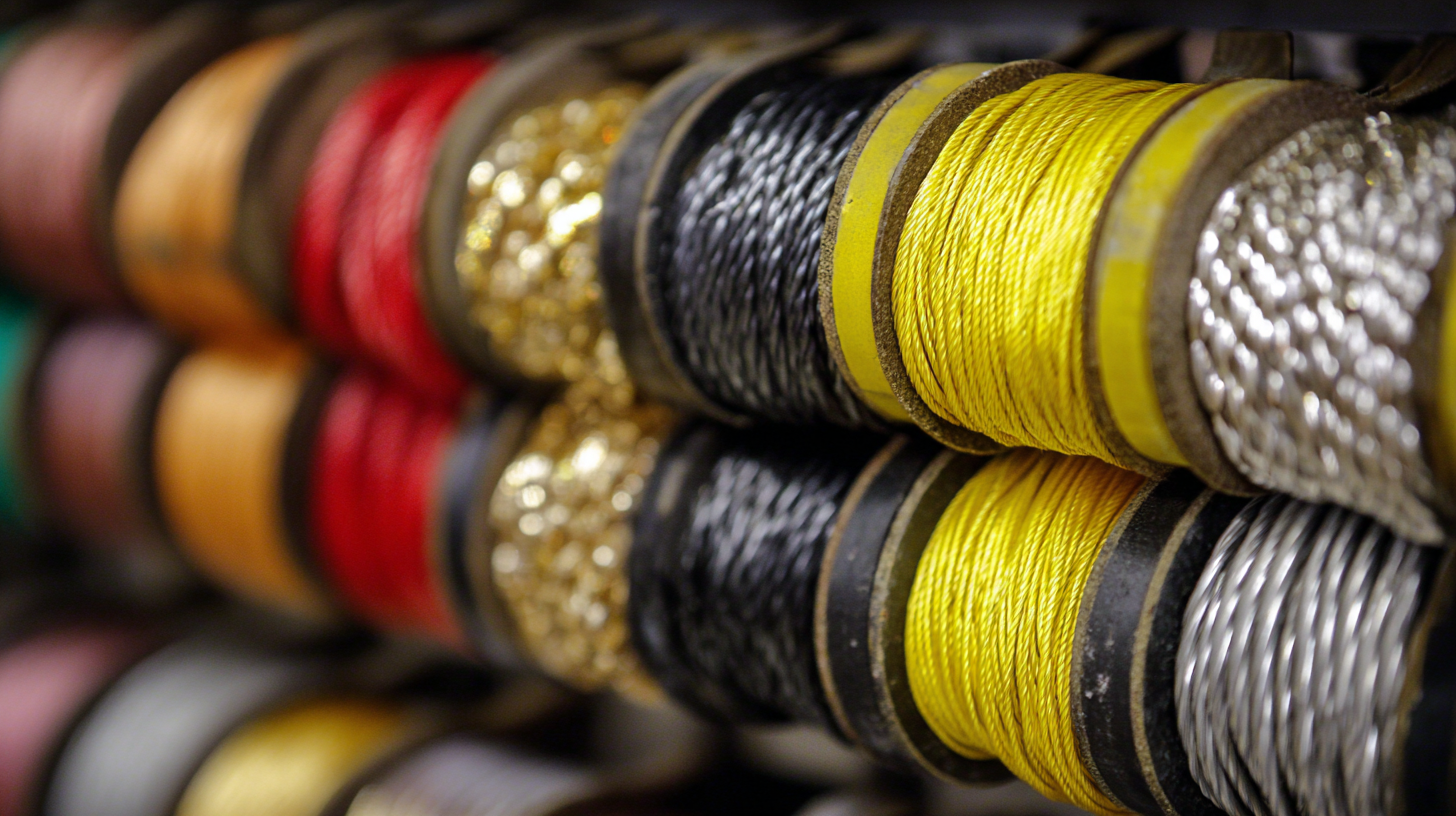
When selecting the right electrical wire for your projects, the first step is to consider the specific requirements of the job at hand. Understanding wire types—such as copper, aluminum, or fiber optics—and their insulation materials, like PVC or XLPE, is crucial for optimizing both efficiency and safety. For instance, copper wires are known for their superior conductivity and durability, making them ideal for high-performance applications, while aluminum wires might be a more cost-effective solution for larger projects.
Moreover, environmental factors and local regulations can significantly impact your choice of electrical wire. In regions like Japan, where the infrastructure is continually updated with more poles, selecting durable and resilient wiring becomes a priority to withstand natural elements. Conversely, in countries like China, there’s a growing trend to replace overhead lines with underground cables, prompting a need for wires that are not only efficient but also resilient to physical and environmental wear. Being informed about these aspects will guide you in making the best decision for your electrical wiring needs, ensuring project efficiency and longevity.
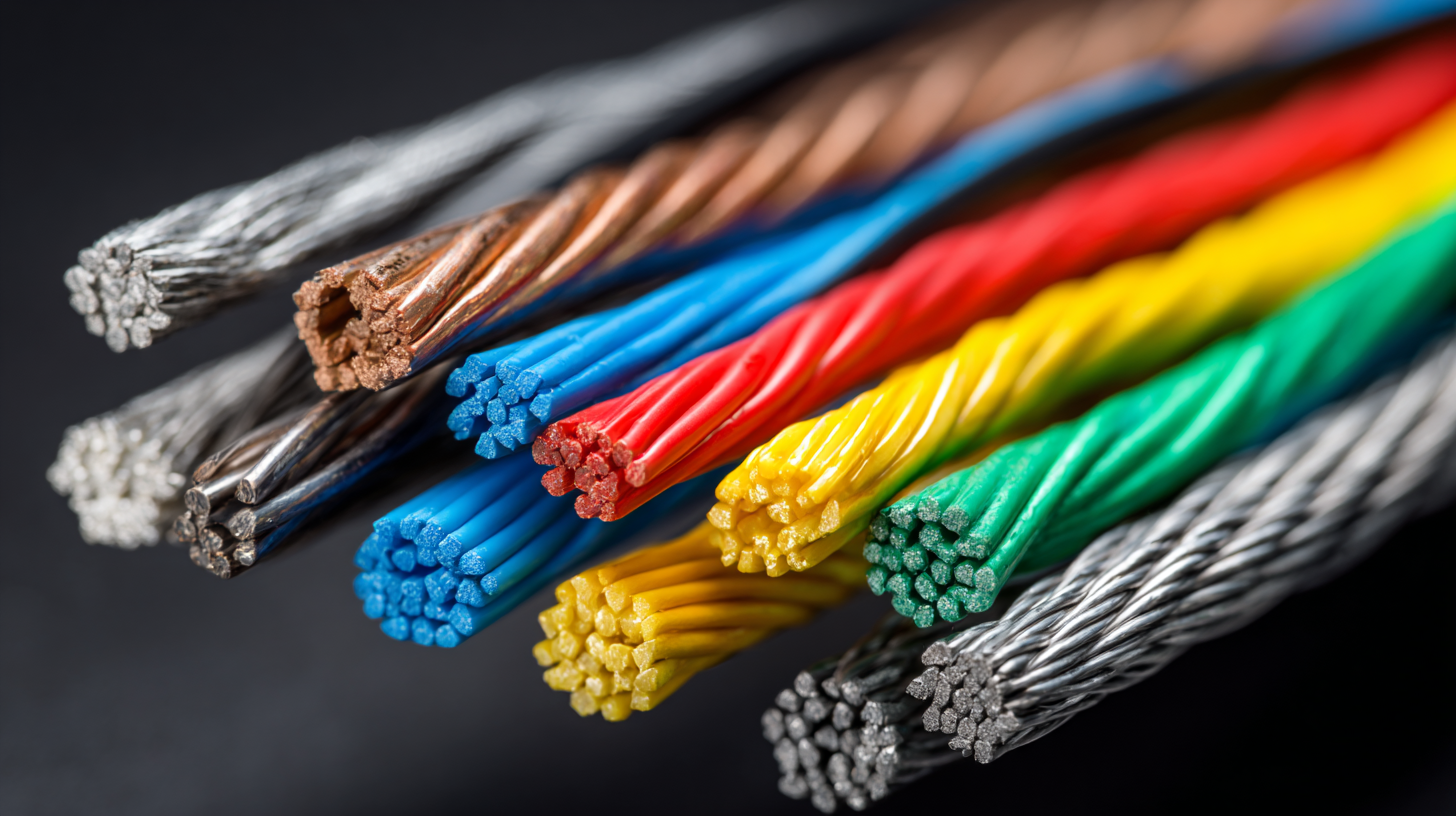
When it comes to electrical installations, the quality of wiring plays a crucial role in ensuring both safety and efficiency. Using high-quality electrical wires can significantly enhance the performance of your projects, reducing the risk of electrical malfunctions and ensuring longevity. High-quality wires are designed to minimize resistance, which not only improves energy efficiency but also decreases the likelihood of overheating and potential fires.
To maximize the advantages of high-quality electrical wires, consider these tips: always choose wires that meet or exceed the National Electrical Code standards for your specific applications. Additionally, investing in wires with proper insulation can further protect against wear and tear due to environmental factors. It's also essential to ensure that the wire gauge is appropriate for the load it will carry, as using an undersized wire can lead to serious safety hazards.
Another important aspect when selecting electrical wires is understanding the environment they will be used in. For outdoor or wet locations, selecting wires with superior weather-resistant insulation is vital. Furthermore, reconsider the overall layout of your electrical systems—efficient routing and minimizing excess length help maintain a streamlined and effective flow of electricity, contributing to energy savings in the long run.
When working with various types of electrical wires, understanding safety standards and regulations is crucial to ensure both efficiency and safety in your projects. Different wire types, such as THHN, NM-B, and UF, are subject to specific codes set by organizations like the National Electrical Code (NEC). Familiarizing yourself with these standards not only helps avoid penalties but also protects you and others from potential hazards related to improper installation.
Tip: Always check local building codes and regulations before commencing any electrical project. Regulations can vary, and adherence to these guidelines will aid in the safe and efficient installation of your electrical systems.
Moreover, using the correct wire gauge is vital for safety and performance. Overloading a wire that is too thin can lead to overheating and electrical fires. The NEC provides detailed guidelines on wire sizing based on the intended load and installation environment.
Tip: Invest in a wire gauge calculator or consult with a professional to determine the appropriate wire gauge for your specific applications. This small step can significantly enhance the safety of your electrical projects while ensuring compliance with safety regulations.
